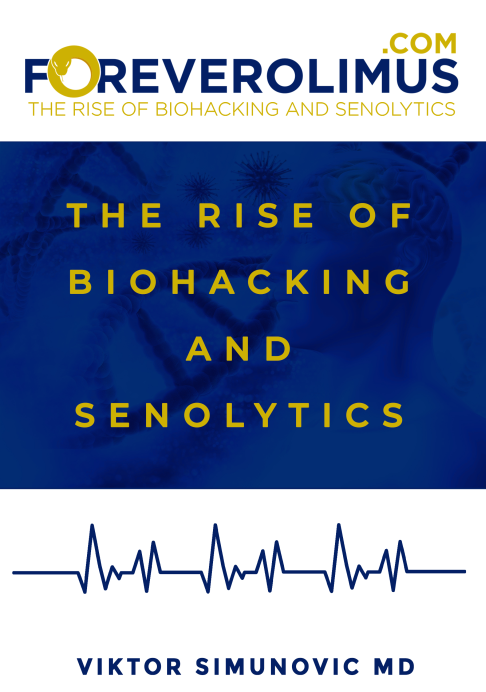
Teaser from the Book: Foreverolimus “The Rise of Biohacking and Senolytics”
At its heart, biohacking is a philosophy that values self-improvement and self-discovery and that provides people with an active, hands-on approach to shaping their biological fortunes. Biohacking practitioners apply different strategies—from gene editing and nootropics supplements to intense biofeedback and lifestyle changes—with their main goal of modifying physiological processes and increasing overall well-being.
The rapid development of technology paired with a rapidly growing change towards customized healthcare makes this field not only exceptionally promising but also breaks new and unprecedented ethical grounds. Digging into biohacking would not be exhaustive without considering not just the scientific and technological aspects, but also how these practices affect individuals and society.
Biomarkers as the measurable indicators of the biological status or the condition is the core of modern medicine. Biomarkers are a combination of molecular and cellular/physiological measurements that give clear evidence of the health status of a person. These markers comprise various types such as genomics, proteomics, radiomics, and clinical, which diagnostically, prognostically, and therapeutically have tremendous significance.
Biomarkers are very important in science because they help identify diseases at an early stage, personalize the treatment, and determine accurately the efficacy of the treatment. Because the specific biomarkers enable the detection of diseases more accurately, doctors not only can forecast more precisely but also choose the best therapy approaches. Furthermore, biomarkers help not only to develop new treatments but also to identify drug targets and to observe the results of the treatment in clinical trials.
CRISPR’s use in biohacking initiatives arouses both enthusiasm and ethical issues. On the other hand, Personalized genetic interventions hold great promise of curing genetic diseases, boosting bodily function and even enhancing cognitive ability. However, CRISPR’s accessibility and its use outside the traditional laboratory setting also raises fundamental questions about the aspect of safety, equity, and the unforeseeable consequence of gene editing method.
Discussion of the Ethical Questions Raised by DIY Genetic Engineering: An important ethical problem of DIY genetic engineering is safety. Although CRISPR technique provides never seen before precision, there is still a possibility of off-target effect and unintentional outcomes, especially when it is in virtue of unqualified DIY biohackers. The lack of strong oversight and regulatory frameworks for DIY genetic engineering further aggravates existing concerns against these unintended genetic mutations, ecological disruptions, and the heightened risk.
Subscribe to the FOREVEROLIMUS Newsletter
Sign up to join 500,000+ other subscribers and receive regular emails on neuroscience, health and science-related topics.
